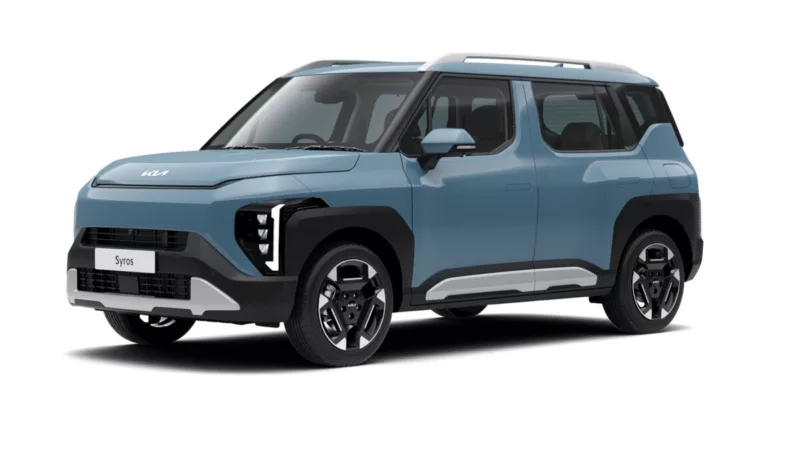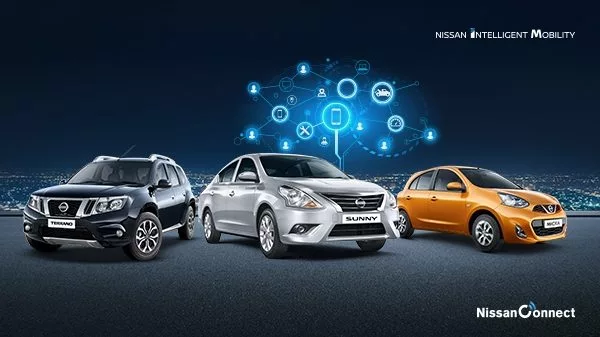Given the swift and effortless driving experience, millions of drivers prefer automatic transmission over manual gearboxes. As demand has picked up, many car makers are offering models with different kinds of automatic transmissions. The Dual-Clutch Transmission (DCT) also termed as Direct-Shift Gearbox Transmission (DSG), is a widely popular transmission system in current mainstream cars. What exactly is a Dual-Clutch transmission and how does it benefit us, let’s understand.
What is Dual-Clutch Transmission?
In order to understand the dual-clutch transmission, we first need to understand how regular manual transmission functions. The manual transmission works on the arrangement of three shafts, input shaft (crankshaft), countershaft, and output shaft (to the wheels). The engine rotates the input shaft which is connected to the countershaft through a clutch. The function of the clutch is to engage and disengage the input shaft and countershaft. The countershaft and output shaft have multiple gears mounted to them that remain meshed for different gear ratios. However, the difference is, the gears on the countershaft are rigidly joined with it and on the output shaft the gears are independent of the shaft. When you press the clutch pedal, the clutch disengages the input shaft from the countershaft, so that you can change the gear ratio, and when you remove your foot from the clutch pedal the input shaft again engages with the countershaft that then runs on the selected gear ratio. For a short while when the input shaft remains disengaged with the countershaft, the power is not supplied to the output shaft and this hinders the fuel efficiency.
[x_video_embed type=”16:9″][/x_video_embed]While the operation of Dual-clutch transmission is much similar to that of the manual transmission, it works to minimize the time gap between switching gears. In the dual-clutch arrangement, two computerized clutches are placed concentrically and they don’t need any manual input. The input shaft/crankshaft remains connected to one clutch and ready to switch to another one. The countershaft consists of two concentric cylindrical shafts on the same axis, they are independent of one another and respectively connected to the two clutches. Both countershafts consist of gears that remain meshed with the independent gears on the output shaft at different gear ratios, just like the regular transmission. One countershaft is designed for even number gear ratios and another for the odd ones.
When the output shaft is running at a particular gear ratio, the computer is anticipating the next needed gear ratio and keeps it pre-selected for the switch, basing it upon acceleration, deacceleration, ongoing speed, and engine speed. So, if you are running the car at 3rd gear (odd number) through one clutch, the computer will keep ready either 4th gear or 6th gear for switching on the second clutch. The computer keeps switching the clutches, there is a bit of overlapping of clutches, but the whole process takes place so fast that there is almost no gap between the two speeds.
Advantages of the Dual-Clutch Transmission
- In a manual transmission, the driver takes around half a second to switch gears and in DCT this process takes place in approx. 8 milliseconds.
- DCT retains the advantages of manual transmission since their designs are much similar.
- DCT reduces the time gap of switching between gear, this significantly improves the mileage of a car.
DCT Automatic Cars in India
Given the popularity of DCT automatic, various cars equipped with transmission are available in India. Here are the 5 most affordable among them.
Hyundai i20
The sleek hatchback from the Korean automaker boats of the 7-Speed DCT automatic transmits the power of a 1.0L turbocharged petrol engine. The power output is 120 PS and the peak torque is 172 Nm. The mileage that the Hyundai i20 produces through the DCT automatic is 20 km/l.
Features of Hyundai i20
- 10.25-inch touchscreen infotainment system with Apple CarPlay and Android Auto
- Air purifier
- Sunroof
- LED headlamps
- Up to six airbags
- Rear parking sensors
- Electronic stability control
Hyundai i20 | New car price (Ex Showroom) | Used car price (starting) |
₹6.91 – 11.40 lakhs | ₹2.92 lakhs |
Hyundai Venue
Sharing the with Hyundai i20, Hyundai Venue is also equipped with a 7-Speed DCT automatic connected to the 1.0L turbocharged petrol engine. The power and the peak torque this engine churn out are 120 PS and 171 Nm. The mid-size SUV delivers 18 km/l of mileage through the DCT automatic.
Features of Hyundai Venue
- Electric Sunroof
- Automatic climate control with rear vents
- Cruise control
- Automatic and projector headlamps
- Wireless charger
- ESC (Electronic Stability Control) and Vehicle Stability Management
- ABS with EBD
- Up to 6 airbags
Hyundai Venue | New car price (Ex Showroom) | Used car price (starting) |
₹6.99 – 11.85 lakhs | ₹8 lakhs |
Kia Sonet
While having the 7-Speed DCT is one of the transmission options, Kia Sonet gets the same engines that Hyundai Venue does. The DCT transmission in this mid-size SUV is connected to a 1.0L turbocharged petrol engine that produces 120 PS of power and 172 Nm of peak torque. The Kia Sonet delivers 18.3 km/l of mileage with DCT automatic.
Kia Sonet features
- The 10.25-inch touch infotainment system and a 4.2 inch digital MID
- Front Ventilated Seats
- Smart Air Purifier with Virus Shield
- Multiple Drive and Traction Modes
- Remote engine start
- Bose 7 speaker premium sound system
- Up to six airbags
- ABS with EBD
- ESC and Vehicle stability management
Kia Sonet | New car price (Ex Showroom) | Used car price (starting) |
₹6.89 – 13.55 lakhs | ₹10.77 lakhs |
MG Hector
The widely known British mid-size SUV, MG Hector has 6-Speed DCT as one of its automatic options. The DCT automatic comes mated with a 1.5L turbocharged petrol engine that produces 143 PS of power and 250 Nm of peak torque. Through the 6-Speed DCT automatic, the MG hector delivers 12 km/l.
MG Hector features
- 10.4-inch touchscreen infotainment system
- Hinglish commands for connected car tech
- Ventilated front seats
- Wireless charger
- Panoramic sunroof
- Cruise control
- Automatic climate control
- Powered driver’s seat
- Ambient lighting
- Up to six airbags
- Front and rear parking sensors
- ABS with EBD
- Electronic stability control
- 360-degree camera
MG Hector | New car price (Ex Showroom) | Used car price (starting) |
₹13.49 – 19.35 lakhs | ₹16.80 lakhs |
Hyundai Creta
Being installed with 7-Speed DCT automatic is one of the key factors behind the success of Hyundai Creta. The DCT transmission comes mated with a 1.4L turbocharged petrol engine that churns out 140 PS of power and 242 Nm of peak torque. Hyundai Creta delivers 17 km/l of mileage through the 7-Speed DCT automatic.
Features of Hyundai Creta
- 10.25-inch infotainment system
- Power-adjustable driver seat
- Panoramic Sunroof
- 7-inch semi-digital instrument cluster
- Ventilated front seats
- Wireless charging
- Up to 6 airbags
- ABS with EBD and ESC
Hyundai Creta | New car price (Ex Showroom) | Used car price (starting) |
₹10.16 – 17.87 lakhs | ₹7.30 lakhs |
The ever-increasing demand for automatic transmission has rendered many automatic cars over the years. Since the dual-clutch automatic transmission improves the fuel efficiency which is the need of the hour, hopefully, we’ll see many DCT equipped cars being rolled in the not-so-distant future. If you are one of the admirers of DCT automatic transmission and looking to own a car equipped with one, the aforementioned info will help you make an educated choice.
FAQs about DCT or DSG Automatic: How it Works and Advantages
Q. What is DCT in cars?
The DCT full form is Dual-Clutch Transmission. It uses two clutches to pre-select gears, providing smooth and fast shifts compared to manual transmissions.
Q. DCT vs DSG: What’s the difference?
DCT and DSG are similar systems. While both are dual-clutch transmissions, DSG full form (Direct-Shift Gearbox) is what Volkswagen calls it. However, both technologies work similarly in reducing shift times.
Q. What is DSG in cars?
The DSG gearbox is a type of dual-clutch system used by Volkswagen. It enables quicker gear shifts, enhancing performance and efficiency.
Q. Are DCT cars in India fuel-efficient?
Yes, cars with a DCT gearbox generally offer better fuel efficiency due to the reduced time between gear shifts, which minimises power loss.
Q. What is DSG transmission used for?
DSG transmissions are designed to deliver seamless gear shifts, particularly in performance-oriented cars, making them popular for sporty driving experiences.
Important Links
7 Seater Cars | Best Mileage Cars | Used Cars In Bangalore | Used Cars In Delhi | Hybrid Cars in India | Sunroof Cars | Used Cars In Gurgaon | Used Cars In Hyderabad | Used Cars In Noida | Used Cars In Pune | CNG Cars in India | Jeeps in India | Used Cars In Mumbai | Used Cars In Ahmedabad | Types of Cars | Car Brands in India | Used Cars In Chennai | Used Cars In Kolkata | Used Cars in Lucknow | Automatic Cars in India | Luxury Cars in India | Used Cars in Chandigarh | Used Cars in Coimbatore | Used Cars in Indore | Used Cars in Jaipur



 ne big family!
ne big family!